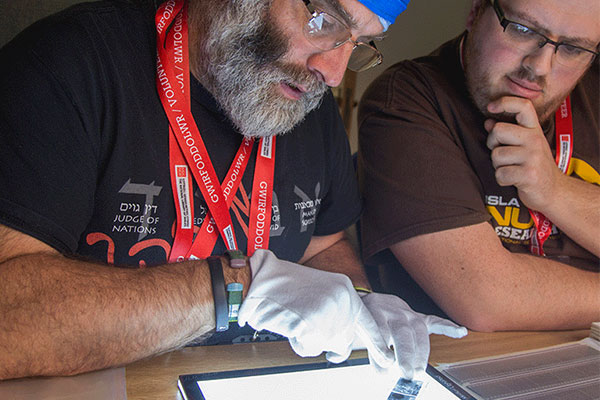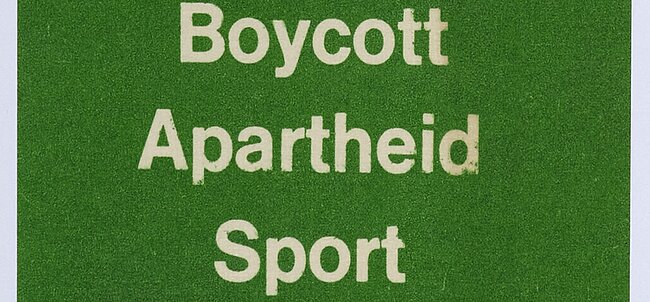Learning toolkit
Background
Apartheid was a system in South Africa that separated people based on their skin colour that lasted from 1948 to 1991. Apartheid discriminated against Black and Brown people and ensured that South Africa was dominated politically, socially, and economically by the nation's dominant minority white population.
Many people in Wales and the United Kingdom disagreed with apartheid and protested when sports teams from South Africa toured around Britain. The protestors tried to disrupt South African cricket and rugby tours mainly - these teams were closed to Black players. People were starting to understand the awful truth of apartheid - however the sporting world was not listening. During the South African Rugby tour of 1969 there had been protesting apartheid at various grounds, but one of the largest demonstrations was seen on the 15th of November at St Helens, Swansea. The clash between protesters and the police became brutal, with over 100 injured including 11 police officers.
Possible questions to discuss
- What is apartheid?
- Who was Nelson Mandela?
- Why were people in Wales protesting against sports teams visiting from South Africa?
- Who is Peter Hain?
- Why did Peter Hain receive threatening letters?
- What happened in Swansea on the 15, November 1969?
- Why is it known as the Battle of Swansea?
- How does this demonstration compare with more recent civil rights demonstrations?
Activities and experiences
- Compare the diversity of rugby teams from South Africa in 1969 with teams today.
- Investigate apartheid in South Africa and the role Nelson Mandela played.
- Investigate anti-apartheid movement in Wales and the UK and their activities.
- Explore Peter Hain's archive for more insight on what happened during the 'Battle of Swansea'.
- Watch videos of anti-apartheid protests in Wales.
- Copy the style of 'Racism is a Poison' poster by Paul Peter Piech.
Key concepts
(derived from the statements of what matters)
Languages, Literacy and Communication
- Listening with empathy and respect
- Listen and understand
- Understanding perspectives
Expressive Arts
- Representing personal, social and cultural identities
- Exploring purpose and meaning
Humanities
- Social and cultural importance
- Identity
- Social similarities and differentiation
- Understanding human rights
- Developing paths of enquiry
- Interpret sources and information
- Governance systems











